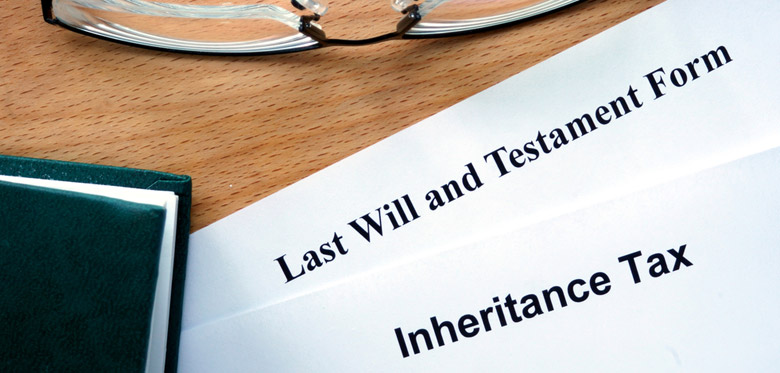Due to the Covid 19 situation many of us will be aware that the national debt has ballooned to around 100% of annual gross domestic product.
On the basis that there isn’t a magic money tree, at some point this debt will need to be repaid – by us. The government has broadly two options: spend less and/or tax more. With the spending commitments already in the pipeline it doesn’t seem unreasonable to assume that higher taxes are on their way, if not immediately then in the foreseeable future. One tax which might be reviewed to generate more revenue is inheritance tax.
Currently less than 5% of families pay inheritance tax and the annual take to April 2019 was £5.4 billion. The average liability was approximately £179,000 which is a significant sum. These figures are likely rise, if not via an increase in the headline rates of IHT and/or a decrease in allowances, then by fiscal drag whereby the increase in assets prices and erosion of the real value of available allowances by inflation over time increases the IHT take.
There are ways exposure to IHT can be reduced and these are summarised as below.
Gifting
Apart from decreasing the size of your estate by expenditure future IHT bills can be mitigated by gifting. Over and above the small gift exemptions and gifting out of normal income, any larger gift will fall out of reckoning in the estate if you survive 7 years from the date of the gift. Should you die within 3 to 7 years of making the gift it may be taxed on a sliding scale known as taper relief.
Gifts to charity qualify for a 100% exemption to IHT.
Keep within the available IHT exemptions
The IHT exemption available is presently £325,000 and this is frozen until 2021. If you own property an additional nil rate band of £175,000 is available provided the property is left to a lineal descendant which is broadly children and grandchildren. A married couple would therefore potentially have a shield to IHT totalling £1 million on the second death.
Any estate in excess the available IHT thresholds at the date of death may be subject to inheritance tax of 40%.
Leaving more than 10% of the net estate to charity would reduce the headline IHT to 36%.
Make a Will
Preparing a Will allows you to maximise any available IHT reliefs and provide certainty that your estate will pass to beneficiaries in accordance with your wishes.
The alternative to not having a Will is for your estate to be dealt with by the Intestacy provisions under statute. This is unlikely to achieve the same result as you may wish.
Get hitched
There are distinct IHT tax advantages in getting married or entering into a civil partnership. The main one is that upon the first death everything can pass to the survivor free of IHT. The overall IHT position still has to be addressed on the second death whereby currently any unutilised allowances from the first death can be claimed up to £1 million per couple as mentioned above.
Assets which provide IHT relief
Certain assets provide business property relief (BPR) and/or Agricultural Property Relief (APR) relief on death at either 50% or 100%. These include business assets, farms and agricultural property, woodlands and heritage assets.
The governing rules are complex and assets normally need to be owned for at least two years prior to death.
In addition, shares listed on the Alternative Investment Market (AIM) and Enterprise Investment Scheme (EIS) investments also qualify once these have been held for two years
Use of life assurance
A whole life policy taken out and written in trust should normally pay out the proceeds outside your estate on death and therefore not be subject to IHT.
It is also possible to utilise the policy to settle any IHT payable on the estate.
This planning could certainly ease the financial burden on your family and beneficiaries after you die, especially if the main asset is the family home which otherwise might need to be sold.
Paying into a pension
Paying into a pension is a useful way to save which provide tax relief and often benefit from employers contributions. The assets grow tax free outside your estate and currently can be accessed at 55 years of age.
The value of the pension pot if you die before 75 can be passed to your family and beneficiaries free of IHT if withdrawn within 2 years. If you die after 75 withdrawals are taxed at the marginal income tax rate of the recipient.
At the moment you can pay 100% of your earnings up to a maximum of £40,000 per year into a pension.
It is also possible to withdraw up to 25% of the value of your pension tax free.
Use of trusts
Trusts can be used to hold assets and provide for family and future generations. The value of your estate can be mitigated if assets are gifted into trust. There may be tax charges in creating a trust, when property leaves a trust, on the ten year anniversary of the trust as well as trust and legal costs. However with careful planning and the right advice these charges can be minimised.
This area is complex and various forms of trust can be used. Apart from helping to minimise IHT for the settlor of the trust it can provide the trustees with an element of control over the trust assets.
If you require any further information or advice regarding any of the points raised in this article please contact us on 0161 696 6238 or complete our online enquiry form. Many of our practitioners are members of STEP (The Society of Trust and Estate Practitioners).



Comments